On May 12, 2011, the Uruguayan weekly publication Búsqueda published excerpts of an investment contract signed between the Executive Branch and Montes del Plata (a joint venture between the Swedish-Finnish company Stora Enso and the Chilean company Arauco). The contract, signed on January 18, establishes the terms and conditions guaranteed to the company for its investment in the pulp mill megaproject in Punta Pereira, located in the municipality of Conchillas in the department of Colonia (1).
A copy of this contract had been requested by Public Prosecutor Enrique Viana of the Public Ministry, but access was denied on the grounds that the contract included a “confidentiality clause” under which both parties were prohibited from divulging information related to the agreement. Prosecutor Viana maintains that these secret negotiations by the Executive Branch infringe on what is a matter of general or public interest in accordance with the Uruguayan constitution; on the provisions of national environmental legislation; on the law of free access to public information; and on democratic transparency. (2)
Having their cake and eating it too
Through a blatantly one-sided contract, Montes del Plata has guaranteed itself a whole series of production and economic conditions for its entire operational life that no Uruguayan company could even dream of achieving. This initial blessing from the Executive Branch also serves as a free pass for the other bodies that projects of this size must successively pass through. Some of the key points are summarized below:
1. Tax benefits of every imaginable kind The sites of both the pulp mill and the port encompassed by the project have been granted enhanced free zone status, and will also enjoy the benefits established under the law on investments. In the meantime, the company’s plantations and all work related to management, harvesting and transportation will receive all of the benefits conferred by the current forestry law.
“With regard to the free zone where Montes del Plata will operate, the document indicates that the company will be able to request the expansion of the area of the site in the event that the pulp enterprise expands its production capacity or incorporates connected industries in the future. The size of the free zone can be expanded to a maximum of double the area already granted (361 hectares).” On top of that, “the Executive Branch has committed to authorizing the company, as the user of the free zone, to employ a larger percentage of foreign personnel,” which is stipulated by the law on free zones as a maximum of 25% of staff.
2. Profitability guaranteed forever “If there are significant changes in the tax regime or with regard to permits and authorizations which negatively affect the economic conditions of the Montes del Plata project, the government and the company will review the special benefits to be granted under the law on investments to compensate for any eventual detrimental effects.”
The company licensed to operate the container terminal in the Port of Montevideo, Belgium-based Katoen Natie, has already demonstrated the reaction of these investors to the slightest eventuality that could affect their profitability, whether through direct action by the government (changes to the tax regime or similar measures), or simply by allowing other agents to operate which may compete with their products or increase the cost of basic industrial services.
3. The government will reclassify soils – to suit the company’s needs – in order to increase profits. The government and Montes del Plata agreed to make “every possible effort to obtain a ‘forestable’ area of 100,000 hectares [of new land designated as suitable for forestation] where plantations can be established within a 200-kilometre radius of the future mill.” “The parties agreed on the need to gradually replace plantations located a greater distance from the mill with others located within a maximum of 200 kilometres from Punta Pereira.”
“The contract states that the Department of Renewable Natural Resources (RENARE) of the Ministry of Livestock, Agriculture and Fisheries (MGAP) has initiated a study that will allow for the enrichment of soil cartography and a subdivision of soils classified as 5.02b.” “This study should give rise to an amount of reclassified soils sufficient for the needs of the project, according to the document. And it adds that if this does not prove to be the case, the parties will make every possible effort to find alternative solutions to obtain a ‘forestable’ area of 100,000 hectares with the potential for the establishment of plantations within a 200-kilometre radius of Punta Pereira.”
“The study or alternative solutions should be completed within a maximum of three years, but this does not preclude reaching agreements in the meantime on partial solutions once a definitive decision on implementing the project is made. Until the reclassification of soils by RENARE (MGAP) is concluded, the government has assumed the responsibility for 5.02b category soils with the necessary characteristics to be considered as soils where forestation is given priority shall be considered conditioned soils and granted the approval of this agency. In order to fulfil the plans for the planting of trees the government has agreed to issue a resolution regarding the company’s projects within a maximum of four months, in the case of soils where forestation is given priority, and in a maximum of six months for soils where forestation is not given priority.”
Up until now, the environmental movement and academic sectors have not succeeded in convincing the Executive Branch to review the definition and percentage of soils classified as suitable for forestation on the basis of arguments of public interest, in addition to technical criteria pertaining to traditional uses of soil types, including characteristics of the ecosystem and of other natural resources, their relationship with the hydrologic cycle, etc. Nevertheless, to serve the interests of a private company – which already controls more than 200,000 hectares of land under direct ownership and other forms of landholding – the Executive Branch has quickly put MGAP to work and set strict deadlines to fulfil the conditions established.
In an article published in November 2010, Guayubira highlighted statements made by Walter Zimmer, the intendente or head of the departmental government of Colonia, who declared that creating tree plantations in this part of the country would be “murder” and further commented that “the president is in total agreement that trees should not be planted in Colonia.” According to Zimmer, “it would destroy the department where we are producers of food and where we also have very important water reserves, and what will be in short supply here in the future is food and water.” (3)
The same article reported that “Montes del Plata is reportedly pressuring the Ministry of Livestock, Agriculture and Fisheries to reclassify the soils in Colonia and to ‘find’ 100,000 hectares to be designated for forestation. Their sights are apparently set on a category of soils (5.02b) located in elevated areas that are rather shallow but have historically been used for dairy, livestock and agricultural production.”
We can therefore reach two conclusions from this chapter of the agreement: the national inventory of soils classified as suited to forestation is being expanded at the request of a private company, while the views of the local population and their government and being ignored, in order to increase – even more – the profitability of the megaproject.
4. Evading the border security law?… The contract establishes the undertaking of “an analysis of the potential impacts of the border security bill, and in the event that this legislation places restrictions on the company’s activity, the two parties will jointly seek alternatives to prevent detrimental effects to this investment project.” The bill in question, which was submitted to parliament during the previous term of government, proposes establishing a 20-kilometre strip along the country’s land and river borders with neighbouring countries in which foreign citizens cannot own land.
5. …and the land reform institute? “The government also assumes the commitment that the Institute of Colonization [the land reform agency] will not exercise the option to purchase the lands that will by transferred by the companies Eufores and El Esparragal – linked to Ence – to Montes del Plata, as long as ‘market values’ are used, according to the document.”
6. A made-to-measure law Last month, the MGAP authorized El Esparragal S.A. to figure as the legal owner of rural properties, one more exception in favour of the corporations belonging to the company. The corporations law, which was meant to respond to concerns over the concentration of land ownership by foreign companies, already includes an exception in favour of this type of company. And if this weren’t enough, “the government commits to exonerating the Impuesto al Patrimonio (assets tax) applicable to the agricultural enterprises of corporations linked to this company, whose shareholders are legal entities expressly authorized to own rural properties, granting them the same treatment as corporations whose shareholders are individuals. According to the contract, the government will accept these authorizations as valid for future land purchases necessary for the Montes del Plata project.”
In conclusion, this investment contract, signed by an official representing the Executive Branch, which has not been signed by a single minister nor been exhaustively addressed in the Cabinet of Ministers, and which has been kept secret, establishes exceptional and considerable economic benefits for a transnational investment that would not be available to Uruguayan companies. It also ensures that in the future, the company will be compensated for “significant changes in the tax regime or with regard to permits and authorizations which negatively affect the economic conditions of the project.” This secret contract defines the course of the use of the country’s natural resources, its land management, its environment, essentially, the course of national development, conditioning the possibilities of intervention by Uruguayan society and the nation’s sovereign action for a very long period of time.
Grupo Guayubira
May 17, 2010
(1) The text in quotation marks is taken from the article “Si cambia reglas, el Ejecutivo compensará a Montes del Plata” published by Búsqueda; text in square brackets has been added for purposes of clarification. The full Búqueda article is available (only in Spanish) at: http://www.guayubira.org.uy/celulosa/contratoMontesdelPlata.pdf
(2) The complete text (available only in Spanish) of the request submitted by Prosecutor Viana is available at: http://www.guayubira.org.uy/celulosa/MontesdelPlata-abril2011.pdf
(3) See the article “Montes del Plata advances on Colonia: The pulp mill will not come alone” at: http://www.guayubira.org.uy/2010/11/montes-del-plata-advances-on-colonia-the-pulp-mill-will-not-come-alone/
For more information:
2413 2989 – 099 367 966
info@guayubira.org.uy
http://www.guayubira.org.uy


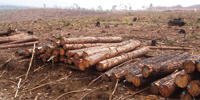

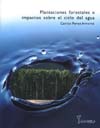
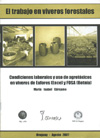
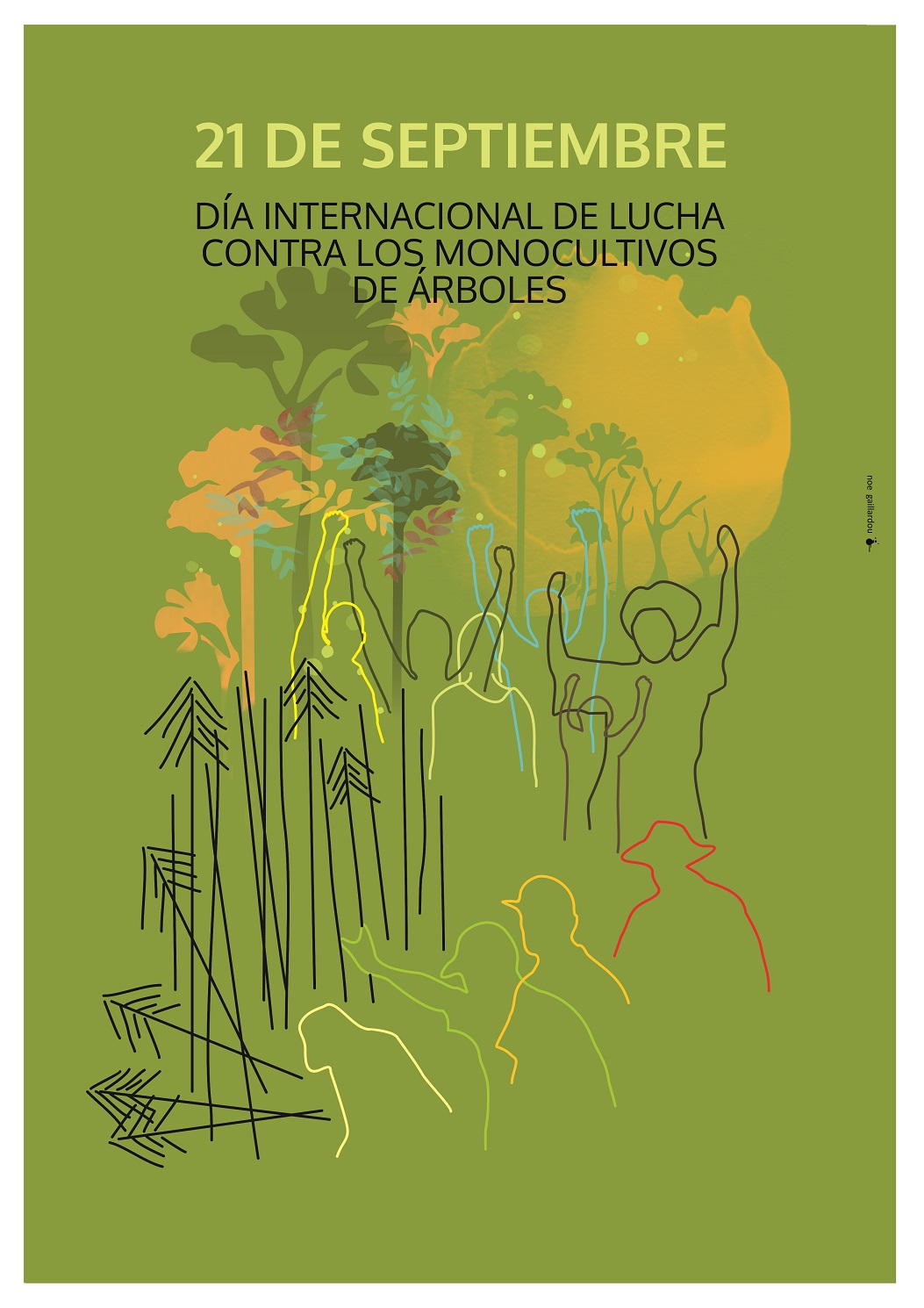

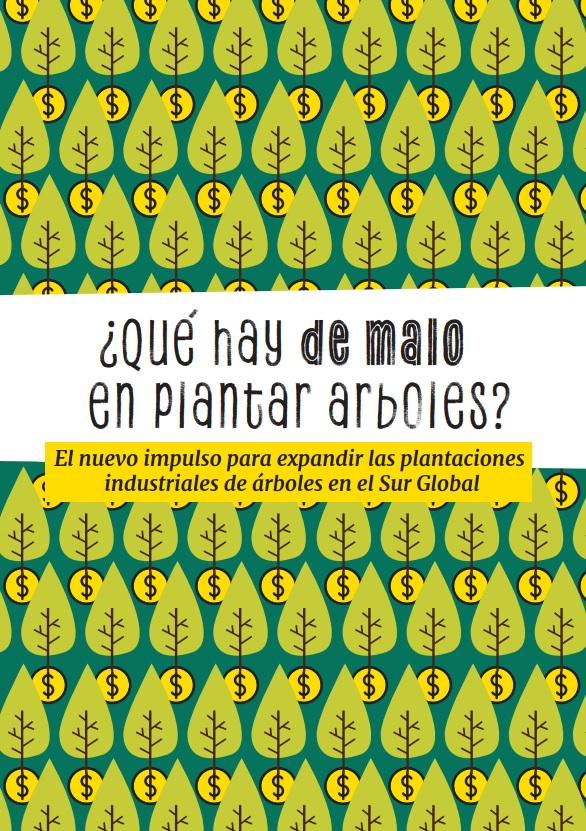





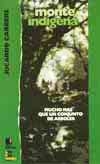



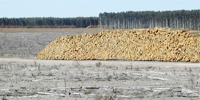
[…] The contract establishes exceptional and considerable economic benefits for a transnational investment that would not be available to any Uruguayan company. Hidden behind phrasing such as “the parties will make every possible effort to find solutions” are hours and hours of meetings between representatives of the company and the Uruguayan government, which were clearly a great success for the company. The agreement even stipulates that in the future, the company will be compensated for “significant changes in the tax regime or with regard to permits and authorizations which negatively affect the economic conditions of the project.” To learn about some of the benefits established in the agreement see “The secret investment contract between the Uruguayan government and Montes del Plata” at: http://www.guayubira.org.uy/2011/05/montes-del-plata-secret-investment-contract […]